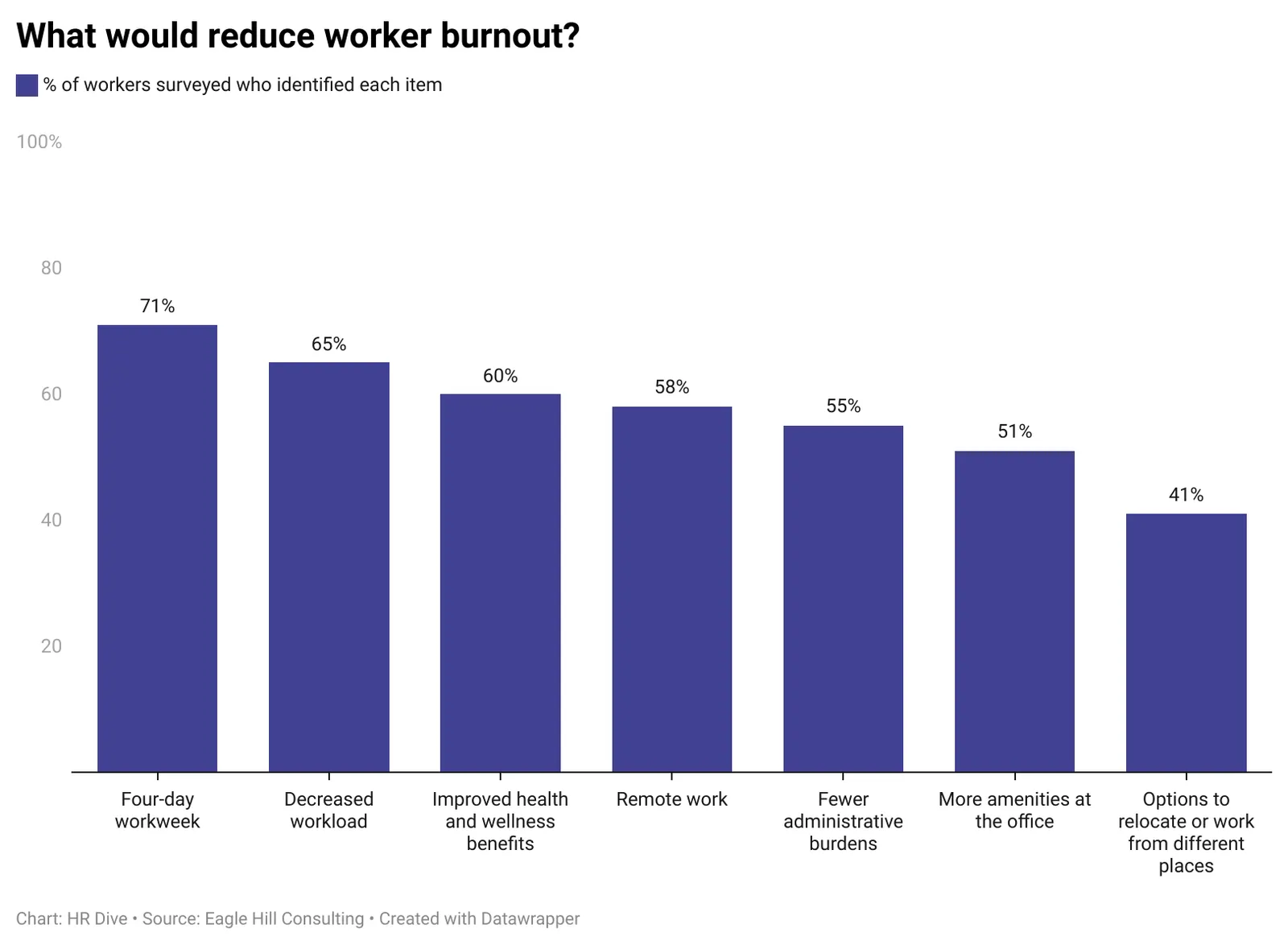Dive Brief:
- Forty-six percent of U.S. workers say they are burned out, down from 49% in August 2022 and 58% in August 2020, according to research by Eagle Hill Consulting, a management consulting firm, released March 6.
- Employees said workload, staff shortages, balancing their personal and professional lives, lack of communication and support, and time pressures were the top causes of their burnout, the research found.
- “While worker stress levels are trending downward, employers should not be complacent in addressing employee burnout,” Melissa Jezior, president and CEO of Eagle Hill Consulting, said in a news release. “Still, nearly half of the workforce reports burnout, and that is far too high for organizations that seek optimal performance and retention of their top talent. When employees are tired and stressed, you can bet they’ll either underperform or look for another job.”
Dive Insight:
The research, which collected survey responses from 1,001 U.S. workers from Feb. 9-13, identified ways employers can help reduce burnout.
Seventy-one percent of workers surveyed said a four-day workweek would help, while 66% wanted more flexibility. Other solutions were a decreased workload, improved health and wellness benefits, remote work, fewer administrative burdens, more amenities at the office, and the option to relocate or work from different places, the research found.

“It’s critically important for employers to dig in to understand exactly what is causing burnout among their workers to properly diagnose and address the problem. Our research shows that workers are comfortable talking about burnout, and those conversations are essential,” Jezior said.
Jezior also warned that layoffs can lead to more burnout among remaining workers. When asked to characterize how staffing shortages affect their workloads, 82% said they have to cover the work of open positions; 39% said they have to train new hires; 37% said they have to help others learn a job; and 28% said they recruit and interview new hires.
“Employers should be cognizant that the current wave of employee layoffs could trigger an uptick in burnout,” Jezio said. “We know that staffing shortages have been a major source of worker burnout.”











